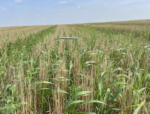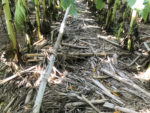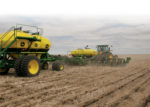Advertise Follow Us
Items Tagged with 'Dan Forgey'
ARTICLES
[Podcast] Diversify Your Rotation to Drive Soil Health with No-Till Innovator Dan Forgey
In this episode of the No-Till Farmer podcast, brought to you by Yetter Farm Equipment, managing editor Michaela Paukner talks with Forgey about the 10,000-acre South Dakota operation he manages, why crop diversification is so important and why he has a passion for soil.
Read More
2022 No-Till Innovators Dedicate Careers to Caring for Soil
South Dakota’s Dan Forgey, Soil Health Consultant Ray Archuleta, Yetter Farm Equipment & the Wisconsin-based Cedar Creek Farmers group advocate for no-till & soil health to improve their communities.
Read More
Increasing Organic Matter Helps Improve Soil Health
South Dakota no-tiller Dan Forgey utilizes high residue crops, livestock grazing to better cycle nutrients and boost organic matter.
Read More
Honoring Leaders, Pioneers in the No-Till Community
The 26th class of No-Till Innovators led advancements in no-tilling by championing organic no-till, no-till tobacco, innovative planter attachments, robust educational events and farmer networks.
Read More
Getting It Done With One-Pass Systems
While some sacrifices are required, more no-tillers are putting down fertilizer with the planter to reduce field passes, boost nutrient efficiency and improve soil health.
Read More
8 Areas To Focus On For Higher Wheat Yields
Residue management, proper seeding rates, timely nitrogen applications and scouting for diseases are some of the keys to pushing no-till wheat yields to worthwhile levels
Read More














